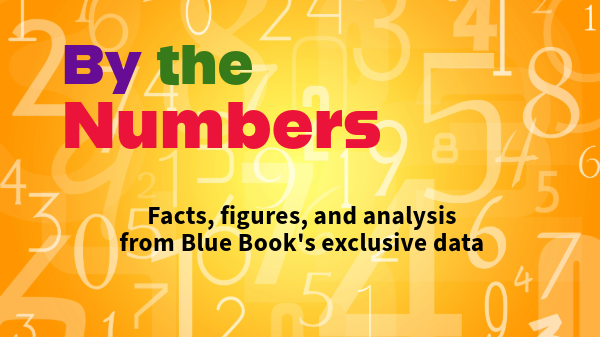Welcome to Blue Book!
Are you ready to join the thousands of companies who rely on Blue Book to drive smarter decisions? View our plans and get started today!
Still have questions? We’d love to show you what Blue Book can do for you. Drop us a line– we’ve been waiting for you.

In this article
All the entities that said a merger between Kroger Company BB #:100073 and Albertsons Companies, Inc. BB #:193326 would be bad for the grocery market may not have fully appreciated that the fallout is also bad for the market.
This spring, the two retailers, and C&S Wholesale Grocers, LLC BB #:137315, which was going to operate the stores divested if the merger went through, filed various lawsuits against each other, alleging all sorts of ugly things.
Timeline
Court filings show the merger started to look shaky as far back as mid-2023, even before the Federal Trade Commission (FTC) and judges in two states opposed it. Here’s a quick recap of how the merger fell apart.
In February 2024, the FTC sued to block the merger alleging the deal was anticompetitive. Studies showed substantial overlap of Kroger-owned and Albertsons-owned stores in Arizona, California, Colorado, Oregon, and Washington.
In July 2024, a Colorado judge issued an order temporarily blocking the proposed merger.
Then in December a U.S. District Court judge in Portland, OR granted the FTC’s request for a preliminary injunction to prevent Kroger from acquiring Albertsons, and King County, WA Superior Court Judge Marshall Ferguson issued a permanent injunction barring the merger.
Shortly after, the retailers gave up their merger pursuit, and Albertsons filed its first lawsuit against Kroger for breach of merger agreement.
Complaints and Lawsuits
The Albertsons suit said Kroger owes it a $600 million termination fee and additional relief from the investment in trying to obtain approval for the merger.
Then C&S Wholesale Grocers sued Kroger for refusing to pay a $125 million termination fee after the merger deal fell through.
C&S Wholesale had agreed to acquire nearly 600 stores that would be divested if the merger was approved. However, C&S Wholesale executives weren’t happy with the store selection they were offered, according to court documents.
C&S Wholesale said it believed it could compete more effectively with well-known banners such as Safeway, Vons, or Jewel-Osco, but instead was being offered what it considered lesser banners in Haggen, Mariano’s, QFC, and Carr’s.
Kroger said in response to C&S Wholesale’s lawsuit that C&S Wholesale is not entitled to the termination fee because it disparaged the divestiture plan to regulators and didn’t follow necessary steps to prepare to run the divested stores.
In March, Kroger filed its answer and counterclaims to the complaint brought by Albertsons.
As detailed in the court filing, while Kroger said it was working diligently to seek regulatory approval and close the merger, Albertsons was engaging in a secret and misguided campaign with C&S Wholesale Grocers to pursue its own regulatory strategy, which ultimately undermined Kroger’s efforts.
American consumers have many diverse options when buying groceries, and that’s a sign of a healthy market. Billions of dollars spent in failed mergers and legal fees hurts the market and consumers.
Concluding Thoughts
While we wait for these suits and countersuits, Kroger seems to be going about its business as the country’s biggest retail grocer.
However, Albertsons said throughout the court process that without the merger, it would likely need to exit some markets and close some stores.
Kroger also revealed in court filings this month that it spent nearly $1 billion in merger-related costs. Obviously, this money could have been spent more productively in retrospect.
While I think there are strong arguments on both sides of whether the Kroger and Albertsons merger would have been anticompetitive, I have also disagreed with the FTC position that the merger only affected the grocery market and not the overall American retail food market.
The FTC did not consider companies like Amazon, Walmart, Dollar General, or Aldi to be grocery competitors, and clearly they are.
American consumers have many diverse options when buying groceries, and that’s a sign of a healthy market. Billions of dollars spent in failed mergers and legal fees hurts the market and consumers.








